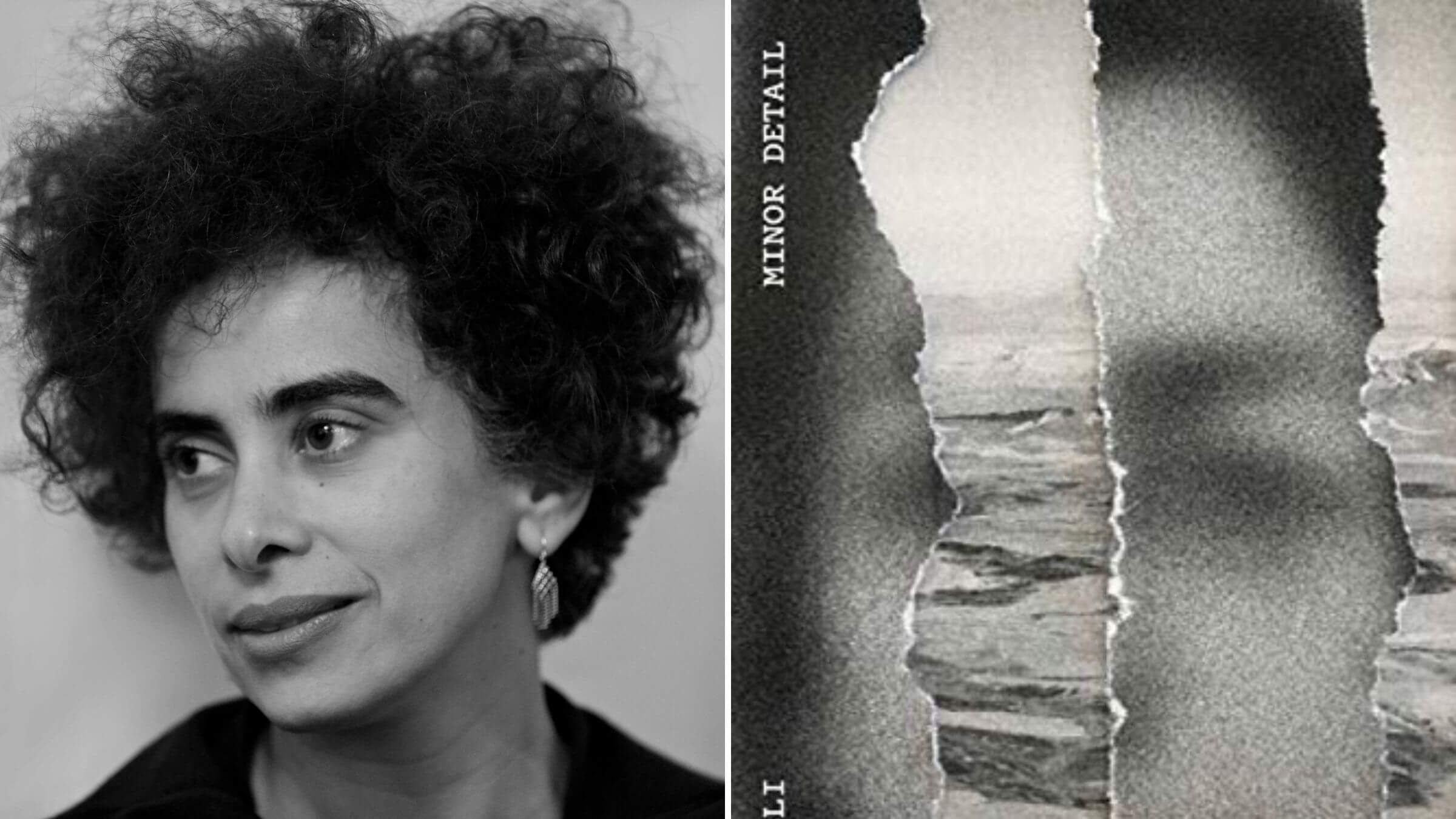Hundreds of writers protest cancellation of Palestinian author’s event at Frankfurt Book Fair
Organizers called off an award ceremony for Adania Shibli’s ‘Minor Detail,’ a novel based on the true story of a 1949 rape of a Palestinian girl by Israeli soldiers

Graphic by Angelie Zaslavsky
Over 600 writers, academics, and publishing professionals are protesting the cancellation of an event honoring a Palestinian author at the Frankfurt Book Fair.
The German literary organization LitProm had planned to award the LiBeraturpreis, an annual prize given to women authors from the Global South, to Adania Shibli for her novel Minor Detail. In the wake of a Hamas attack that killed over 1,000 Israelis, LitProm called off the ceremony, saying in a statement that the organization would find “a suitable format and setting for the event at a later point,” and that Shibli would still receive the prize.
An open letter published by the magazine ArabLit accused LitProm and the Frankfurt Book Fair of “closing out the space for a Palestinian voice” and argued that “canceling cultural events is not the way forward.” Hundreds of writers, editors and artists, including Nobel Prize winners Olga Tokarczuk, Abdulrazak Gurnah and Annie Ernaux, have signed the letter, as have Naomi Klein, Judith Butler and Rachel Kushner.
The letter contested LitProm’s initial assertion that Shibli had agreed to cancel the event, writing that the decision was made without the author’s knowledge and that she had hoped to use the ceremony to “reflect on the role of literature in these cruel and painful times.”
Minor Detail takes place in 1949, one year after the war that led to the creation of Israel and the displacement or expulsion of over 700,000 Palestinians. The novel portrays a group of Israeli soldiers operating in the Negev desert who capture, repeatedly rape, and kill a teenage Bedouin girl. Shibli based the narrative on real events recorded in classified Israeli documents which the newspaper Haaretz obtained and published in 2003. The soldiers were later tried in secret, with the platoon commander sentenced to 15 years in prison for murder and 19 others receiving shorter sentences for “negligence in preventing a crime.”
Nominated for the National Book Award and the International Booker Prize, Minor Detail has also faced criticism in Germany for its representation of Israel. After LitProm announced that it would award the LiBeraturpreis to Shibli, a member of the judging panel resigned, citing the novel’s “anti-Israel and antisemitic narratives.”
Germany has been lauded for its efforts to reckon with its Holocaust history. But critics, including many Jewish academics, say that the country’s leaders have conflated Israel advocacy with opposition to antisemitism and suppressed Palestinian and anti-Zionist voices. After the 2022 cancellation of a play about a love affair between two Jewish and Arab college students (a state-funded antisemitism watchdog objected to, among other things, the depiction of a “neurotic” Jew and a Holocaust survivor who jokes about his ordeal), the scholar Susan Neiman accused the country of veering into “philosemitic McCarthysim.”
As Israel initiated a bombardment campaign and “complete siege” in Gaza, several Palestinian cultural events have been cancelled or postponed. Organizers of Palestinian film festivals in Boston and Rochester, New York, called off live events. Meanwhile, a theater troupe based in the Jenin refugee camp said that a French mayor blocked a performance of its play And Here I Am.
The Frankfurt Book Fair, the largest international gathering of publishing professionals, pledged to “make Jewish and Israeli voices especially visible at the book fair” in the wake of the Hamas attack. Since the cancellation of Shibli’s awards ceremony, several Arab literary organizations, including the Arab Publishers’ Association and PublisHer, have withdrawn from the festival.
Jacques Testard, the founder of Shibli’s British publisher, Fitzcarraldo, said in the open letter that by canceling the awards ceremony, both LitProm and the book fair were abandoning their broader obligations to the literary community.
“At a time of such horrific violence and heartbreak, the world’s biggest book fair has a duty to champion literary voices from Palestine and Israel,” Testard wrote.

















